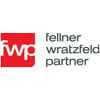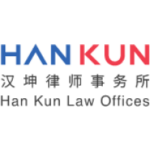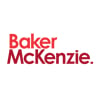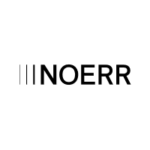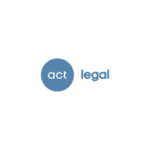-
Please briefly describe the current investment climate in the country and the average volume of foreign direct investments (by value in US dollars and by deal number) over the last three years.
The current investment climate in Switzerland remains overall positive and attractive for foreign direct investment (FDI). This is attributed to Switzerland’s stable political and economic environment, its transparent and solid legal system, its strategically advantageous location as a gateway to the European market, its reliable infrastructure, and its favorable tax system for both companies and individuals. Switzerland is not only one of the world’s largest recipients of inbound investments but also one of the largest outbound investors.
According to the Swiss National Bank (SNB), the stock of direct investment by Swiss companies abroad stood at CHF 1’288 billion in 2023. This is CHF 18 billion (1%) less than in 2022 due to exchange rate losses caused by the strong Swiss franc compared to other important foreign currencies like Euro and US Dollar. Finance and holding companies had the largest capital stock abroad, CHF 479 billion (37%), followed by companies in the chemicals and plastics industry with CHF 190 billion (15%). Combined, Swiss enterprises employ close to 2.5 million people outside of Switzerland. The income from Swiss direct investments abroad amounts to CHF 94 billion.
In comparison, FDIs in Switzerland currently stand at CHF 930 billion and foreign companies employ around 556’000 people in Switzerland. The income from FDIs amounts to CHF 97 billion. In 2023, foreign investors withdrew capital from Swiss companies, with net disinvestments totaling CHF 49 billion (down from CHF 63 billion in 2022). Most of the withdrawals came from financial and holding companies (around CHF 40 billion), particularly from special purpose entities (SPEs) (CHF 29 billion). Disinvestment from financial and holding companies has been observed since 2018, accumulating to CHF 560 billion from 2018 to 2023. Additionally, CHF 10 billion was withdrawn from the trade sector, and CHF 2 billion from the industrial sector. Direct investment inflows were limited, with CHF 3 billion invested in the insurance sector and CHF 2 billion in transportation and communication companies.
However, compared to other countries, Switzerland maintains high levels of FDIs. This can be seen in the ratio between the level of Swiss FDIs and gross domestic product (GDP). The importance of foreign investment is also noticeable in the historic perspective, as the capital through Swiss investments abroad has more than doubled since 2010 (and quadrupled since 2000).
Switzerland is currently drafting a FDI law (Investment Control Act). The draft is currently under parliamentary consideration. The draft aims to regulate only the acquisition of domestic companies operating in (security-)critical sectors (transportation, healthcare, food etc.) by foreign state-controlled investors if certain de minimis or turnover thresholds are met. “State-controlled” will also mean private investors if they are directly or indirectly controlled by a state. The law is unlikely to come into force before 2025/2026.
-
What are the typical forms of Foreign Direct Investments (FDI) in the country: a) greenfield or brownfield projects to build new facilities by foreign companies, b) acquisition of businesses (in asset or stock transactions), c) acquisition of minority interests in existing companies, d) joint ventures, e) other?
Typical forms of FDIs in Switzerland include:
- Equity capital investments: Equity capital investments account for the largest share of FDI in Switzerland (CHF -71 billion in 2023).
- Intragroup loans: Loans between the foreign parent company to its Swiss subsidiaries (CHF +10 billion in 2023).
- Reinvested earnings: Net profits of the foreign company are retained within the company and reinvested in Switzerland (CHF +12 billion in 2023).
These investment forms reflect Switzerland’s role as a global hub for business, finance, and innovation, making it a prime location for various types of FDIs.
-
Are foreign investors allowed to own 100% of a domestic company or business? If not, what is the maximum percentage that a foreign investor can own?
Yes, in Switzerland, foreign investors are generally allowed to own 100% of a domestic company or business. Switzerland does not currently have a general FDI control regime. However, there are specific sectors which require approval regarding foreign investments, including real estate (Lex Koller), national security, strategic sectors like telecommunication, aviation, or energy including public infrastructure, and banking and financial services. Additionally, the Swiss Government plans for an Investment Control Act (see above).
-
Are foreign investors allowed to invest and hold the same class of stock or other equity securities as domestic shareholders? Is it true for both public and private companies?
Yes, foreign investors in Switzerland are free to invest in and hold the same class of stock or equity securities as domestic shareholders in both public and private companies, except for certain sectors where national interests may be involved. The merger of formally independent undertakings or the acquisition of direct or indirect control of a Swiss undertaking may, however, be subject to prior approval of the Swiss Competition Commission (ComCo) depending on the thresholds (see below Question 19).
-
Are domestic businesses organized and managed through domestic companies or primarily offshore companies?
In Switzerland, domestic businesses are primarily organized and managed through domestic companies rather than offshore companies. This is due to Switzerland’s strong legal framework and the global reputation of its companies creating a reliable and transparent business environment, favoring domestic corporate structures over offshore entities. While some Swiss companies may use offshore entities for specific needs, the overall trend leans toward local businesses. The country’s commitment to transparency and compliance has also reduced its appeal as an offshore hub.
-
What are the forms of domestic companies? Briefly describe the differences. Which form is preferred by domestic shareholders? Which form is preferred by foreign investors/shareholders? What are the reasons for foreign shareholders preferring one form over the other?
Corporation (Aktiengesellschaft, AG):
- Overview: A public limited company, suitable for larger businesses.
- Ownership: Shares can be publicly traded or privately held.
- Liability: Company’s liability is to the extent of its assets. Shareholders’ liability is limited to their capital contribution.
- Minimum Capital: CHF 100’000 (at least CHF 50’000 must be paid up).
- Management: Managed by a Board of Directors.
Limited Liability Company (Gesellschaft mit beschränkter Haftung, GmbH):
- Overview: A private company form, commonly used by small to medium-sized businesses.
- Ownership: Ownership is split into membership interests (not shares).
- Liability: Company’s liability is to the extent of its assets. Members’ liability is limited to their capital contribution.
- Minimum Capital: CHF 20’000 (fully paid-up).
- Management: Managed by one or more directors.
Sole Proprietorship (Einzelfirma):
- Overview: A business owned and managed by a single individual.
- Ownership: The owner is the sole shareholder.
- Liability: The owner has unlimited liability for the business’s debts.
- Minimum Capital: No minimum capital requirement.
- Management: The owner manages the business directly.
Limited Partnership (Kommanditgesellschaft, KG):
- Overview: A partnership with two types of partners: general and limited.
- Ownership: One or more general partners and limited partners.
- Liability: General partners have unlimited liability; limited partners’ liability is restricted to their capital contribution.
- Minimum Capital: None.
- Management: Managed by the general partners.
General Partnership (Kollektivgesellschaft, KlG):
- Overview: A partnership where all partners have joint and several liability.
- Ownership: Partners share ownership and responsibilities.
- Liability: Unlimited joint liability for all partners.
- Capital Requirement: No minimum capital requirement.
- Management: Managed by all partners collectively.
Cooperative (Genossenschaft):
- Overview: A company owned and operated by its members, typically for mutual benefits.
- Ownership: Ownership is typically based on the number of shares owned by members.
- Liability: Generally, limited to the cooperative´s assets unless otherwise specified in the articles of association.
- Minimum Capital: None, unless otherwise specified in the articles of association.
- Management: Managed by a Board of Directors.
Cooperative ((eingetragener) Verein):
- Overview: Owned and operated by its members, typically for mutual benefits, suitable for non-commercial purposes.
- Ownership: A Cooperative does not have owners.
- Liability: No personal liability for the members.
- Minimum Capital: None.
- Management: Managed by a Board of Directors.
Which form is preferred by domestic shareholders?
Generally, the preferred legal form of domestic shareholders depends on multiple factors such as business size, preferred liability structure, the type of business, and the capital available to start the company.
The most common legal form in Switzerland is the sole Proprietorship (Einzelfirmen). This legal form is particularly popular among small and medium sized enterprises. This is because sole proprietorships are easy to establish, require a relatively small amount of capital and have low administrative costs as well as a straightforward tax system. However, unlimited liability, which exposes both business and personal assets to financial risk, is a deal breaker for many businesses.
The second and third most common legal form in Switzerland are the Corporation (AG) and the Limited Liability Company (GmbH). Both are preferred by larger companies due to their limited liability, which protects the shareholders’ personal assets. Generally, as companies grow, the share of sole Proprietorships decreases, while Corporations (AGs) and Limited Liability Companies (GmbHs) become increasingly prevalent. This is due to the various benefits of these legal forms:
Benefits of the Corporation (Aktiengesellschaft, AG):
- Limited Liability: Shareholders are only liable for their capital contribution. Their personal assets are protected.
- Capital Raising: The Corporation’s legal structure facilitates flexible capital raising through the issuance of shares, making it easier to attract investments and fund expansions.
- Transferring Shares: The Corporation’s legal structure also facilitates the transfer of shares.
- Low Capital Requirement: The minimum capital requirement of CHF 100’000 provides an accessible entry point for many businesses.
- International Reputation: Corporations are generally seen as professional and enjoy good international reputation.
Benefits of the Limited Liability Company (Gesellschaft mit beschränkter Haftung, GmbH):
- Limited Liability: Shareholders are only liable for their capital contribution. Their personal assets are protected.
- Low Capital Requirement: The minimum capital requirement of CHF 20’000 provides a very accessible entry point for businesses.
- Tax advantages: Amongst various tax benefits, capital gains realized on the sale of shares in a Limited Liability Company are tax-free.
Ultimately, the choice between a Corporation (AG) and a Limited Liability Company (GmbH) depends on the size of the business and its long-term strategy. Generally, Corporations (AGs) are preferred by larger businesses with significant capital needs, while small and medium sized enterprises rely on Limited Liability Companies (GmbHs).
Which form is preferred by foreign investors/shareholders?
Foreign investors in Switzerland prefer the Corporation (AG) or the Limited Liability Company (GmbH) as their legal form in Switzerland.
What are the reasons for foreign shareholders preferring one form over the other?
The reasons for foreign investors to prefer one form over the other are manifold.
- International Reputation: Generally, Corporations (AGs) enjoy a good and professional international reputation. The minimum capital investment of CHF 100’000 signals strong financial commitment to creditors and investors, compared to the Limited Liability Company (GmbH), which can be established with only CHF 20’000.
- Capital Requirement: Businesses with large capital requirements prefer the legal form of a Corporation (AG) as it is easier to find creditors and investors.
- Anonymity: Shareholders of a Corporation (AG) can remain anonymous.
- Flexible Share Transferability: The Corporation (AG) offers more flexibility for shareholders as shares can easily be transferred or sold at any time.
- Control: Due to the flexibility and anonymity of a Corporation (AG), a Limited Liability Company (GmbH) enjoys more control over its ownership structure. If a business wishes to retain influence over its shareholders and encourage active involvement in the daily operations, the Limited Liability Company (GmbH) might be better suited.
- Political Reforms: In 2008, the Limited Liability Company’s (GmbH’s) upper share capital of CHF 2 million was removed. This increased the attractiveness of the legal form for creditors and investors, as a Limited Liability Company (GmbH) must no longer be necessarily associated with low capital.
- Costly Conversion: Although the biggest challenge for a transition from Limited Liability Company (GmbH) to a Corporation (AG) is raising the necessary capital, the involvement of a notary and the commercial register result in additional costs.
The best legal form for foreign investors in Switzerland has to be assessed on a case by case basis.
-
What are the requirements for forming a company? Which governmental entities have to give approvals? What is the process for forming/incorporating a domestic company? What is a required capitalization for forming/incorporating a company? How long does it take to form a domestic company? How many shareholders is the company required to have? Is the list of shareholders publicly available?
Which governmental entities have to give approvals?
All companies must be registered with the Commercial Register (Handelsregister) at the location where the company has or wishes to establish its seat. Other governmental entities like the public notary or the Federal Tax Administration become relevant in the forming process but no explicit “approval” is required from them.
What is the process for forming/incorporating a domestic company?
- Choose the best legal form: Based on the advantages and disadvantages highlighted above, a foreign investor must first choose which legal form best suits the business’s needs and in which region (Canton) the company is to be headquartered. The corporate tax rate depends on the Canton.
- Choose company name: Foreign investors must choose a unique company name.
- Open capital payment account: In case of a Corporation (AG) or Limited Liability Company (GmbH), a capital payment account must be opened. The relevant initial capital must be raised and deposited – CHF 100’000 for a Corporation (AG), CHF 20’000 for a Limited Liability Company (GmbH). The initial capital must be deposited prior to the incorporation process. The bank will certify the initial capital has been deposited.
- Prepare founding documents: Depending on the Canton in which the company is registered, various documents must be prepared prior to the initiation of the incorporation process, like the articles of association of the company.
- Notarize documents: The incorporation of a company requires the founder(s) to declare their intention to incorporate a company. The notary will also certify the founding documents, i.e. the articles of association of the company and the Public Deed.
- File formation with the Commercial Register: An application for incorporation and registration of the company must be submitted with the Commercial Register in the Canton the company will be headquatered. Once registered, the company acquires its legal personality.
What is a required capitalization for forming/incorporating a company?
- Corporation (AG): The minimum share capital is CHF 100’000. At least 20% of the share capital but a minimum of CHF 50’000 must be paid up at the time of the incorporation.
- Limited Liability Company (GmbH): The minimum share capital is CHF 20’000. It must be fully paid up at the time of the incorporation.
How long does it take to form a domestic company?
The incorporation process, including the preparation process, usually takes 2 to 4 weeks. The duration depends on the Cantonal Commercial Register, the type of company to be registered and several other factors like additional licenses and approvals from other regulatory bodies.
How many shareholders is the company required to have?
Both Corporation (AG) and Limited Liability Company (GmbH) require at least one shareholder.
Is the list of shareholders publicly available?
The shareholders of a Corporation (AG) are not publicly available. However, the Commercial Register contains public information regarding the Corporation and the founding shareholders.
The shareholders of a Limited Liability Company (GmbH) are registered in the public Commercial Register.
-
What are the requirements and necessary governmental approvals for a foreign investor acquiring shares in a private company? What about for an acquisition of assets?
Currently, there is no general foreign investment control regime and no general governmental approval required in Switzerland. However, there are certain industry and sector-specific regulations and approval requirements to consider. Certain industries and sectors require a governmental license, for example the aviation industry, telecommunication and postal services, nuclear energy providers, radio and television broadcasting, railway industry, or the war material industry.
- Banking and financial services: The Federal Banking Act entails specific license requirements which are controlled by the Swiss Financial Market Supervisory Authority (“FINMA”), if a non-Swiss person directly or indirectly controls the Bank.
- Real estate: The acquisition of residential real estate by foreign investors is restricted under the Lex Koller and requires authorization from Cantonal authorities.
- Competition Law: The merger of independent undertakings or the acquisition of direct or indirect control over an undertaking is subject to control by the Swiss Competition Commission (“ComCo”) if certain thresholds are reached. Planned concentrations must be notified if the undertakings concerned together reported a turnover of at least CHF 2 billion, or a turnover in Switzerland of at least CHF 500 million or at least two of the undertakings concerned each reported a turnover in Switzerland of at least CHF 100 million.
- Public Takeovers: The Financial Markets Infrastructure Act entails specific rules for public takeover offers for participations in companies domiciled in Switzerland.
-
Does a foreign investor need approval to acquire shares in a public company on a domestic stock market? What about acquiring shares of a public company in a direct (private) transaction from another shareholder?
Investors who reach, exceed, or fall below the threshold of 3, 5, 10, 15, 20, 25, 33⅓, 50 or 66⅔ per cent of the voting rights in a company are subject to the notification requirement. The investor – a person, a group, or a fund – must notify the company and the Disclosure Office within four trading days.
-
Is there a requirement for a mandatory tender offer if an investor acquired a certain percentage of shares of a public company?
Yes, according to Article 135 of the Federal Act on Financial Market Infrastructures and Market Conduct in Securities and Derivatives Trading (FinMIA), anyone who directly, indirectly or acting in concert with third parties acquires equity securities which, added to the equity securities already owned, exceed the threshold of 33⅓% of the voting rights of a target company, whether exercisable or not, must make an offer to acquire all listed equity securities of the company.
This provision aims to ensure the principle of equitable treatment among shareholders while affording minority shareholders the opportunity to divest their holdings on fair and equitable terms in the context of a change in control. The offer price must comply with the minimum price rule set forth in Article 135 para. 2 FinMIA, requiring it to be at least as high as the higher of the stock exchange price and the highest price that the offeror has paid for equity securities of the target company in the preceding twelve months.
However, the target company’s articles of association may provide for an increased threshold of up to 49% of voting rights (opting-up; Article 135 para. 1 FinMIA) or state that an offeror shall not be bound by the obligation to make a public takeover offer in accordance with Article 135 FinMIA (opting-out; Article 125 para. 3 and 4 FinMIA).
-
What is the approval process for building a new facility in the country (in a greenfield or brownfield project)?
When building a new facility in Switzerland, regardless of whether it’s a greenfield or brownfield project, the respective approval process entails certain key phases as well as potential additional steps, depending on the scale and complexity of the envisaged project and the local requirements applicable to it:
- Planning: The first step is the identification of suitable properties or land for the envisaged project. The selection of a particular site should, among others, take into account its location, development and accessibility. Furthermore, zoning regulations and environmental impacts of a project are to be considered at this stage.
- Zoning Considerations: It’s crucial to review the local zoning plan and to examine whether the envisaged project complies with local zoning regulations. If the project does not meet the applicable requirements, an amendment of the local zoning plan may be required, which involves the local authorities.
- Environmental Impact Assessment: It may be required to carry out an Environmental Impact Assessment if the envisaged project could have significant impacts on the environment. Such assessment considers the potential effects of the project on the environment and proposes mitigation measures (if necessary) as for instance the relocation or use of different materials or technologies. Permits from different authorities may have to be obtained in this respect.
- Building Application: A building application, including construction plans, taking into consideration Swiss building codes and standards, must be submitted to the local authorities where the facility is intended to be built. In most cantons, the envisaged project is subsequently publicly announced, which gives legitimized parties (e.g. neighbors, authorities or environmental organizations) the possibility to comments and object to the submitted building application within a certain period.
- Review by Local Authorities and Issuance of Construction Permit: The building application is reviewed by the local building authority (under certain circumstances in coordination with a cantonal authority) in view of all laws and regulations applicable to the specific project. Any objections raised in relation to the project and corresponding appeals (if any) have to be resolved before the local authority issues its permit. The local authority may request modifications to the submitted plans. If all prerequisites are met, the local authority issues the construction permit, which may be subject to certain conditions.
- Construction Phase: A specific construction approval (Baufreigabe) has to be obtained before construction can actually commence. This is to ensure that any conditions, which might have been imposed by the building authority in the construction permit, have been fulfilled by the applicant. During the construction phase, inspections are carried out by the relevant authorities on a regular basis to verify whether applicable laws and regulations on employment, safety or construction standards are followed.
- Final Inspection and Approval: Once the construction phase of the facility is completed, the local authorities normally perform a final inspection in order to ensure that all laws and regulations as well as any conditions set forth in the construction permit are met. A certificate confirming that the facility has been constructed in accordance with the approved plans and complies with safety regulations and building codes is to be obtained.
The approval process set out above generally takes a few months for non-problematic projects, provided that no objections against the project are raised. However, for more complex projects, it may take significantly longer to complete the process.
-
Can an investor do a transaction in the country in any currency or only in domestic currency? a) Is there an approval requirement (e.g. through Central Bank or another governmental agency) to use foreign currency in the country to pay: i. in an acquisition, or, ii. to pay to contractors, or, iii. to pay salaries of employees? b) Is there a limit on the amount of foreign currency in any transaction or series of related transactions? i. Is there an approval requirement and a limit on how much foreign currency a foreign investor can transfer into the country? ii. Is there an approval requirement and a limit on how much domestic currency a foreign investor can buy in the country? iii. Can an investor buy domestic currency outside of the country and transfer it into the country to pay for an acquisition or to third parties for goods or services or to pay salaries of employees?
Investors can conduct transactions in Switzerland in any currency and are not restricted to the domestic currency, i.e. the Swiss Franc (CHF).
Is there an approval requirement (e.g. through Central Bank or another governmental agency) to use foreign currency in the country to pay:
- in an acquisition, or
- to pay to contractors, or
- to pay salaries of employees?
There is no approval from the SNB or any other governmental agency required in order to use foreign currency to pay in an acquisition, to contractors, or the salaries of employees. Switzerland maintains a liberal approach to foreign investment and currency transactions, allowing flexibility in the use of foreign currencies. This flexible approach to currency use contributes to Switzerland’s attractiveness as a destination for foreign direct investment and international business transactions. This is for example reflected in statutory company law permitting a company limited by shares to have its share capital denominated in a foreign currency required for its business operations (Article 621 para. 2 of the Swiss Code of Obligations (CO)). At present, these currencies are EUR, USD, GBP and JPY.
Is there a limit on the amount of foreign currency in any transaction or series of related transactions?
Swiss law does not provide for a general limit on the amount of foreign currency that can be applied to a transaction or a series of related transactions due to the currency being a currency other than the Swiss Franc. Having said that, certain regulations, as for instance due diligence requirements imposed on dealers in relation to cash transactions above CHF 100,000 (or the equivalent in a foreign currency) as part of Switzerland’s anti-money laundering rules, have to be complied with.
Is there an approval requirement and a limit on how much foreign currency a foreign investor can transfer into the country?
There is no approval requirement and limit on how much foreign currency a foreign investor can transfer into Switzerland. However, certain reporting obligations may apply in relation to cash transfers into the country (see below Question 15).
Is there an approval requirement and a limit on how much domestic currency a foreign investor can buy in the country?
There is no approval requirement and limit on how much Swiss francs a foreign investor can buy in Switzerland.
Can an investor buy domestic currency outside of the country and transfer it into the country to pay for an acquisition or to third parties for goods or services or to pay salaries of employees?
Yes, an investor can buy Swiss francs outside of Switzerland and transfer such funds into the country to pay for acquisitions, goods, services, or employee salaries. In relation to cash transfers into Switzerland, reporting obligations may apply (see below Question 15).
-
Are there approval requirements for a foreign investor for transferring domestic currency or foreign currency out of the country? Whose approval is required? How long does it take to get the approval? Are there limitations on the amount of foreign or domestic currency that can be transferred out of the country? Is the approval required for each transfer or can it be granted for all future transfers?
There is no approval from the SNB or any other governmental agency required for a foreign investor to transfer domestic or foreign currency out of Switzerland. Switzerland takes a liberal stance on foreign exchange transactions, allowing considerable flexibility in the movement of funds across its borders. In particular, Swiss law does not provide for any exchange controls. Although Switzerland maintains a liberal approach on currency transactions, there are some additional regulations to be aware of when transferring foreign or domestic currency out of Switzerland.
First of all, Swiss anti-money laundering legislation needs to be adhered to when effecting currency transfers out of Switzerland. Financial institutions must comply with strict due diligence obligations such as verifying the identity of their contracting party, identifying the beneficial owner and establishing the origin of the funds, or clarifying the purpose of the transaction if necessary. Financial institutions are obliged to maintain records of transactions and customer information and report suspicious transactions to the Money Laundering Reporting Office Switzerland (MROS). These rules may lead to currency transactions into high-risk countries, transactions from or to high-risk individuals, large or complex transactions without a clear economic purpose, or transactions with unusual patterns being subject to increased vigilance.
In today’s political environment, financial institutions are also mindful of their compliance with international sanctions regulations. Swiss banks must not only comply with Swiss and UN sanctions, but to a large extent also with EU and US sanctions. This may have an impact on cross-border currency transactions as financial institutions are advised to conduct comprehensive risk assessments in order to identify sanction-related risks in their cross-border activities, resulting in increased monitoring and due diligence requirements for transactions involving sanctioned entities or high-risk countries.
Further, tax legislation plays a significant role for foreign investors in cross-border currency transactions. Investors are well advised to ensure compliance with Swiss tax legislation to prevent any difficulties in relation to their domestic or foreign currency movements out of Switzerland.
Finally, cash transfers of more than CHF 10,000 may be subject to reporting obligations (see below Question 15).
-
Is there a tax or duty on foreign currency conversion?
No, Switzerland does not impose a specific tax or duty on foreign currency conversion. However, financial institutions and currency exchange service providers may levy fees or commissions for their services, which are distinct from any statutory tax requirements. In addition, currency conversion normally incurs costs due to exchange rate spreads.
-
Is there a tax or duty on bringing foreign or domestic currency into the country?
No, Switzerland does not levy a specific tax or duty on the import of foreign or domestic currency. Moreover, individuals are allowed to carry unrestricted amounts of cash, including foreign currency and securities (such as shares, bonds and cheques) into, through and out of Switzerland without being required to declare these items to the Federal Office for Customs and Border Security (FOCBS).
However, if questioned about your cash by FOCBS staff during an inspection, you are required to provide truthful information. Especially, if you are (or are suspected of) carrying CHF 10,000 or more, you will need to disclose your identity, the origin, the intended purpose and the beneficiary of the money. If the amount of cash carried equals or exceeds CHF 10,000, a corresponding entry will be made into the information system of the FOCBS.
Failure to provide information or providing inaccurate information constitutes an administrative offense and may result in a fine. Should there be any suspicion of money laundering or terrorist financing, your cash may be temporarily confiscated and turned over to the police.
-
Is there a difference in tax treatment between acquisition of assets or shares (e.g. a stamp duty)?
Yes, from a Swiss tax perspective, the acquisition of assets is treated differently from the acquisition of shares.
For example, if shares are purchased through a Swiss securities dealer, the transaction is subject to security transfer tax (stamp duty). Conversely, when acquiring shares privately, without the involvement of a securities dealer, no stamp duty is imposed. In general, the transfer of shares does not trigger real estate capital gains tax or real estate transfer stamp duty, even if the company whose shares are being acquired holds real estate. However, under certain circumstances, the transfer of shares in a real estate company might be treated as a transfer of the underlying property, thereby triggering real estate taxes.
In contrast, the acquisition of assets typically does not trigger security transfer tax. Nevertheless, if the acquisition involves the transfer of assets that include securities and a Swiss securities dealer is involved in the transaction, security transfer tax might be levied on the securities component of the deal. Furthermore, real estate taxes are likely to apply in the event that real estate is part of the acquisition.
As far as capital gains tax is concerned, the sale of shares is the preferred option from a private seller’s perspective as capital gains from selling shares held by private individuals are generally tax-exempt.
-
When is a stamp duty required to be paid?
In Switzerland, federal stamp duty is levied on the issuance of securities and certain securities transactions. Issuance stamp duty (Emissionsabgabe) of 1% is payable on new equity issued by domestic companies, such as shares or participation certificates, for incorporations or capital increases exceeding CHF 1 million. Security transfer tax (Umsatzabgabe) is levied on the purchase and sale of domestic and foreign securities by domestic securities dealers and is calculated at a rate of 0.15% of the transaction price for domestic securities and 0.3% for foreign securities. With respect to transfers of real estate, there is no federal stamp duty. However, certain cantons impose a real estate transfer stamp duty (Handänderungssteuer), which functions similarly and falls within the range of 1.0% to 3.3% of the property’s sale price, depending on where the property is located.
-
Are shares in private domestic companies easily transferable? Can the shares be held outside of the home jurisdiction? What approval does a foreign investor need to transfer shares to another foreign or domestic shareholder? Are changes in shareholding publicly reported or publicly available?
Shares in private Swiss companies limited by shares are generally easily transferable. However, their transferability may be restricted by statutory law or under the company’s articles of association (Article 685 et seqq. CO) and require the prior authorization of the company, i.e. of its board of directors. If a member of a limited liability company wishes to transfer its capital contribution in the company, the consent of the members’ general meeting is required unless the company’s articles of association provide otherwise (Article 786 CO).
Can the shares be held outside of the home jurisdiction?
Yes, Swiss law does not generally restrict foreign ownership of shares in private Swiss companies (see above Question 3).
What approval does a foreign investor need to transfer shares to another foreign or domestic shareholder?
Subject to the potential restrictions on the transferability of shares set out above, foreign investors do principally not require a specific approval to transfer shares in a private Swiss company to another foreign or domestic shareholder.
Are changes in shareholding publicly reported or publicly available?
While changes in shareholding of private companies limited by shares are not publicly recorded, changes in shareholding of limited liability companies are visible in the publicly available commercial register.
-
Is there a mandatory FDI filing? With which agency is it required to be made? How long does it take to obtain an FDI approval? Under what circumstances is the mandatory FDI filing required to be made? If a mandatory filing is not required, can a transaction be reviewed by a governmental authority and be blocked? If a transaction is outside of the home jurisdiction (e.g. a global transaction where shares of a foreign incorporated parent company are being bought by another foreign company, but the parent company that’s been acquired has a subsidiary in your jurisdiction), could such a transaction trigger a mandatory FDI filing in your jurisdiction? Can a governmental authority in such a transaction prohibit the indirect transfer of control of the subsidiary?
Generally, there is no mandatory FDI filing in Switzerland. Switzerland requires government approval or licenses in specific industries such as banking, securities, real estate, aviation, telecommunications, nuclear energy, and radio and television. In these sectors, restrictions on foreign investors are tied to their unique regulatory contexts rather than a broader economic policy to control foreign investment. It should also be noted that a filing is required if the merger control thresholds are reached.
In December 2023, the Swiss Federal Council referred a draft bill for an Investment Control Act to the Parliament. The Investment Control Act aims to prevent Swiss companies from being acquired by foreign investors if such acquisitions could endanger or threaten public order or security. While foreign investments would generally remain permitted under the act, they would now require approval. The Swiss government could intervene in cases of security concerns (see also above Question 1).
Parliamentary debates on the bill are expected to continue into 2025.
With which agency is it required to be made?
An FDI filing, which, as explained above, is only required for certain sectors, needs to the made to the following agencies:
- Banking Sector: Financial Market Supervisory Authority (FINMA);
- Real Estate Transactions: the respective Cantonal authorities;
- Telecommunications: Federal Office of Communications (BAKOM);
- Nuclear Energy: Swiss Federal Office of Energy (BFE);
- Aviation: Federal Office of Civil Aviation (BAZL); and
- Merger Control Thresholds: The Competition Commission (ComCo).
How long does it take to obtain an FDI approval?
The FDI approval procedure depends on the sector and the complexity of the matter. It can take from several weeks to several months.
Under what circumstances is the mandatory FDI filing required to be made?
See above.
If a mandatory filing is not required, can a transaction be reviewed by a governmental authority and be blocked?
This would be very unusual and we are not aware of any such cases. However, this could change if the Foreign Investment Screening Act enters into force in the future, which would give the Swiss government the right to intervene in cases of security concerns.
If a transaction is outside of the home jurisdiction (e.g. a global transaction where shares of a foreign incorporated parent company are being bought by another foreign company, but the parent company that’s been acquired has a subsidiary in your jurisdiction), could such a transaction trigger a mandatory FDI filing in your jurisdiction?
For regulated sectors, it is possible that a mandatory FDI filing could be required, depending on the circumstances. In unregulated sectors, it is highly unlikely that a mandatory FDI filing would be necessary.
Can a governmental authority in such a transaction prohibit the indirect transfer of control of the subsidiary?
Yes, in regulated sectors, a governmental authority could prohibit the indirect transfer of control of the subsidiary. This again depends on the circumstances.
-
What are typical exit transactions for foreign companies?
There are different possible exit strategies. They mainly depend on the market conditions (e.g. in an uncertain economic environment it will be more difficult to find a buyer for a company) and the financial health and outlook of the company (e.g. it is unlikely that a successful company will be liquidated).
The most usual exit transaction is a sale of the shares or the assets of the company to a third party. The buyer could be a competitor who wants to enter this market or a financial buyer who wants to sell for profit in the future (e.g. a private equity firm). Sometimes the business is also sold to the company’s management (management buyout) which has the advantage that the buyer is already familiar with the business. Other exit strategies include an initial public offering (IPO) or a liquidation of the business as last resort.
-
Do private companies prefer to pursue an IPO? i. on a domestic stock market, or ii. on a foreign stock market? iii. If foreign, which one?
The most popular route is a sale of the shares. IPOs are the exception. A new trend is the so-called dual-track process, where a seller pursues not one but two types of exit strategies. Usually, the sellers move forward with a sales transaction and IPO until deciding which option meets their needs.
Compared to other stock markets like the U.S., the Swiss domestic stock market has the benefit of relatively moderate costs and reduced legal risk including formalities. In addition, Switzerland offers access to a stable and trustworthy currency: the Swiss Franc.
-
Do M&A/Investment/JV agreements typically provide for dispute resolution in domestic courts or through international arbitration?
In our experience, we see that these agreements provide for both dispute resolution in domestic courts as well as international arbitration. In an international context, arbitration is often preferred by foreign parties, as they may not have the same confidence in state court proceedings and their independence. In additional, arbitration can provide for more flexibility (e.g. language, option to pick arbitrators) and therefore be attractive to contractual parties.
It should be noted that Switzerland is set to implement revisions to its Civil Procedure Code (CPC) on January 1, 2025, enabling Cantons to establish international commercial courts where proceedings can be conducted in English. This should strengthen Switzerland’s position as a hub for international commercial dispute resolution.
-
How long does a typical contract dispute case take in domestic courts for a final resolution?
The length of a contract dispute case depends on the complexity of the matter and the expertise of the court. The resources of the court are also relevant, as courts in larger Cantons usually have better capacity to progress larger cases than smaller Cantons.
As for the actual length of proceedings, first instance proceedings usually take six months to two years. If a case is appealed, the appellate court may take another one to two years. If the case can be appealed to the Swiss Federal Supreme Court, a final judgment can be expected within approximately six months.
-
Are domestic courts reliable in enforcing foreign investors rights under agreements and under the law?
Swiss domestic courts are reliable and efficient in enforcing foreign investors rights. Switzerland has a strong legal framework, an independent judiciary, and a long-standing reputation for upholding the rule of law. Swiss courts respect contractual agreements and international obligations, including bilateral investment treaties.
Swiss courts will recognize and enforce foreign judgments according to the Lugano Convention to judgments given by a court or tribunal of a state party to the Convention. In all other cases, foreign judgments are recognized and enforced under the Swiss Federal Act on Private International Law.
-
Are there instances of abuse of foreign investors? How are cases of investor abuse handled?
In general, Switzerland has strong legal protections for property rights and foreign investment. Despite the generally strong protection of foreign investors and investments, there is always a risk that in a particular case a foreign investor or state claims that there has been an abuse.
For such cases, Switzerland’s bilateral investment treaties provide mechanisms for resolving disputes between investors and states (investor-state dispute settlement, ISDS) as well as between the states themselves (state-state dispute settlement, SSDS). ISDS allows foreign investors to directly sue the host state in international arbitration if their treaty rights, such as protection against unfair treatment or expropriation, are violated. SSDS, on the other hand, is used by states to resolve disagreements over the interpretation or application of the treaty, ensuring consistent enforcement. If consultations fail to achieve consensus, both dispute settlement mechanisms provide the option to escalate the matter to independent international arbitration. Together, these mechanisms safeguard investments while maintaining treaty integrity and state sovereignty.
-
Are international arbitral awards recognized and enforced in your country?
Yes. The recognition and enforcement of foreign arbitral awards is governed by the New York Convention on the Recognition and Enforcement of Foreign Arbitral Awards of June 10, 1958. Swiss courts are reluctant to reassess an arbitral tribunal’s decisions on the merits and have adopted a restrictive interpretation of the grounds for denying enforcement.
-
Are there foreign investment protection treaties in place between your country and major other countries?
Switzerland is a member to several treaties with investment provisions like the World Trade Organization’s General Agreement on Trade in Services and its Agreement on Trade-Related Investment Measures. Under the Organization for Economic Co-operation and Development (OECD) Code of Liberalization of Capital Movements, Switzerland has undertaken to refrain from discriminatory practices against foreign investments made by OECD investors.
In addition, Switzerland has signed more than 110 bilateral investment promotion and protection agreements (BITs) to protect foreign investments. According to the United Nations Conference on Trade and Development (UNCTAD), Switzerland has the world’s third largest network of such agreements after Germany and China.
Finally, Switzerland is a member of the European Free Trade Association (EFTA) which promotes liberalizing the establishment of investments.
Switzerland: Investing In
This country-specific Q&A provides an overview of Investing In laws and regulations applicable in Switzerland.
-
Please briefly describe the current investment climate in the country and the average volume of foreign direct investments (by value in US dollars and by deal number) over the last three years.
-
What are the typical forms of Foreign Direct Investments (FDI) in the country: a) greenfield or brownfield projects to build new facilities by foreign companies, b) acquisition of businesses (in asset or stock transactions), c) acquisition of minority interests in existing companies, d) joint ventures, e) other?
-
Are foreign investors allowed to own 100% of a domestic company or business? If not, what is the maximum percentage that a foreign investor can own?
-
Are foreign investors allowed to invest and hold the same class of stock or other equity securities as domestic shareholders? Is it true for both public and private companies?
-
Are domestic businesses organized and managed through domestic companies or primarily offshore companies?
-
What are the forms of domestic companies? Briefly describe the differences. Which form is preferred by domestic shareholders? Which form is preferred by foreign investors/shareholders? What are the reasons for foreign shareholders preferring one form over the other?
-
What are the requirements for forming a company? Which governmental entities have to give approvals? What is the process for forming/incorporating a domestic company? What is a required capitalization for forming/incorporating a company? How long does it take to form a domestic company? How many shareholders is the company required to have? Is the list of shareholders publicly available?
-
What are the requirements and necessary governmental approvals for a foreign investor acquiring shares in a private company? What about for an acquisition of assets?
-
Does a foreign investor need approval to acquire shares in a public company on a domestic stock market? What about acquiring shares of a public company in a direct (private) transaction from another shareholder?
-
Is there a requirement for a mandatory tender offer if an investor acquired a certain percentage of shares of a public company?
-
What is the approval process for building a new facility in the country (in a greenfield or brownfield project)?
-
Can an investor do a transaction in the country in any currency or only in domestic currency? a) Is there an approval requirement (e.g. through Central Bank or another governmental agency) to use foreign currency in the country to pay: i. in an acquisition, or, ii. to pay to contractors, or, iii. to pay salaries of employees? b) Is there a limit on the amount of foreign currency in any transaction or series of related transactions? i. Is there an approval requirement and a limit on how much foreign currency a foreign investor can transfer into the country? ii. Is there an approval requirement and a limit on how much domestic currency a foreign investor can buy in the country? iii. Can an investor buy domestic currency outside of the country and transfer it into the country to pay for an acquisition or to third parties for goods or services or to pay salaries of employees?
-
Are there approval requirements for a foreign investor for transferring domestic currency or foreign currency out of the country? Whose approval is required? How long does it take to get the approval? Are there limitations on the amount of foreign or domestic currency that can be transferred out of the country? Is the approval required for each transfer or can it be granted for all future transfers?
-
Is there a tax or duty on foreign currency conversion?
-
Is there a tax or duty on bringing foreign or domestic currency into the country?
-
Is there a difference in tax treatment between acquisition of assets or shares (e.g. a stamp duty)?
-
When is a stamp duty required to be paid?
-
Are shares in private domestic companies easily transferable? Can the shares be held outside of the home jurisdiction? What approval does a foreign investor need to transfer shares to another foreign or domestic shareholder? Are changes in shareholding publicly reported or publicly available?
-
Is there a mandatory FDI filing? With which agency is it required to be made? How long does it take to obtain an FDI approval? Under what circumstances is the mandatory FDI filing required to be made? If a mandatory filing is not required, can a transaction be reviewed by a governmental authority and be blocked? If a transaction is outside of the home jurisdiction (e.g. a global transaction where shares of a foreign incorporated parent company are being bought by another foreign company, but the parent company that’s been acquired has a subsidiary in your jurisdiction), could such a transaction trigger a mandatory FDI filing in your jurisdiction? Can a governmental authority in such a transaction prohibit the indirect transfer of control of the subsidiary?
-
What are typical exit transactions for foreign companies?
-
Do private companies prefer to pursue an IPO? i. on a domestic stock market, or ii. on a foreign stock market? iii. If foreign, which one?
-
Do M&A/Investment/JV agreements typically provide for dispute resolution in domestic courts or through international arbitration?
-
How long does a typical contract dispute case take in domestic courts for a final resolution?
-
Are domestic courts reliable in enforcing foreign investors rights under agreements and under the law?
-
Are there instances of abuse of foreign investors? How are cases of investor abuse handled?
-
Are international arbitral awards recognized and enforced in your country?
-
Are there foreign investment protection treaties in place between your country and major other countries?

